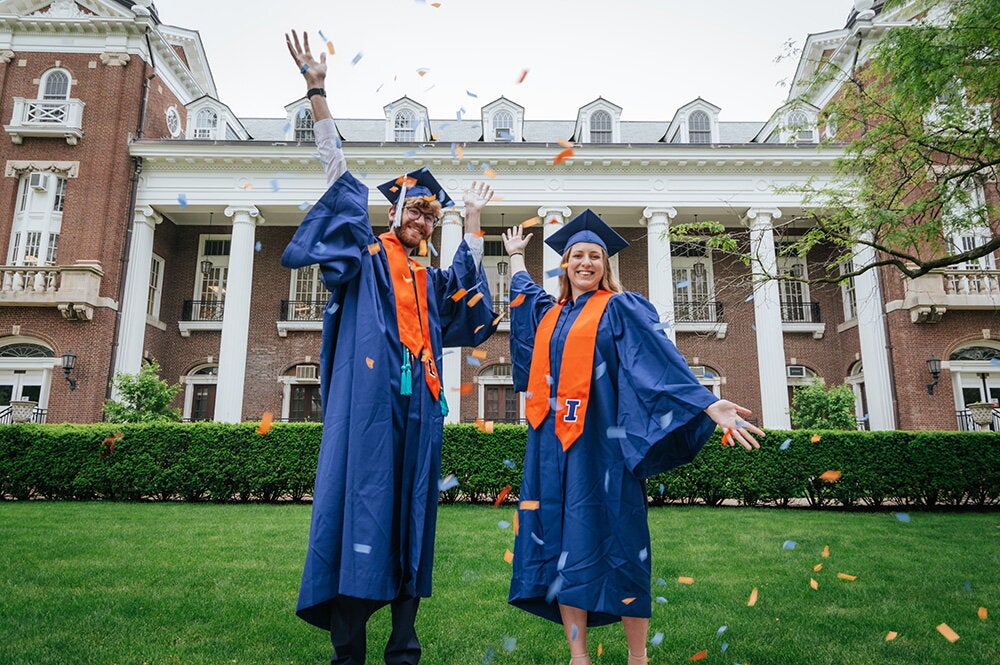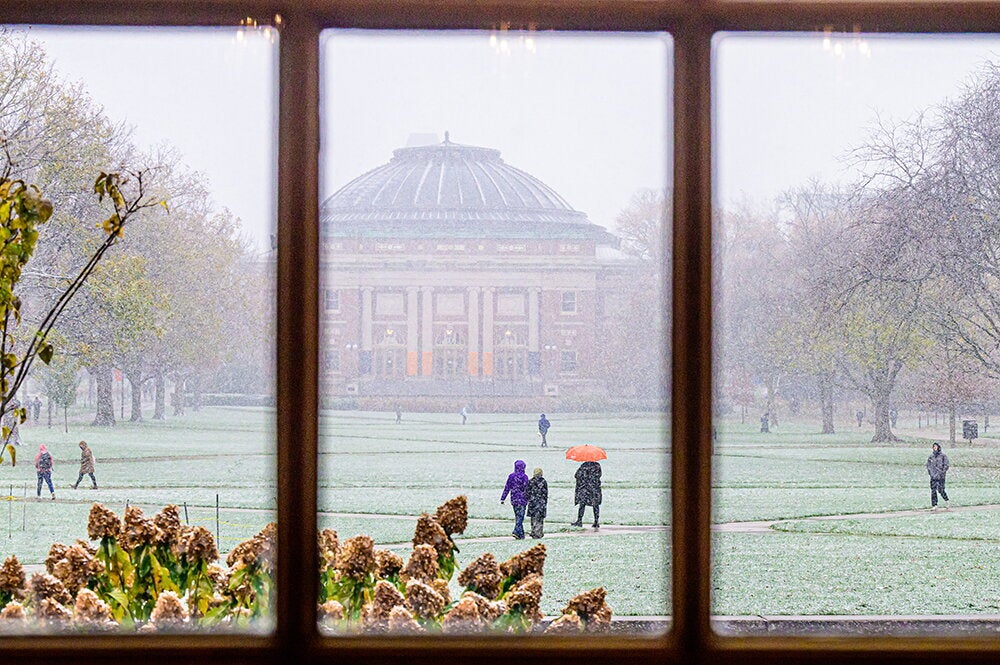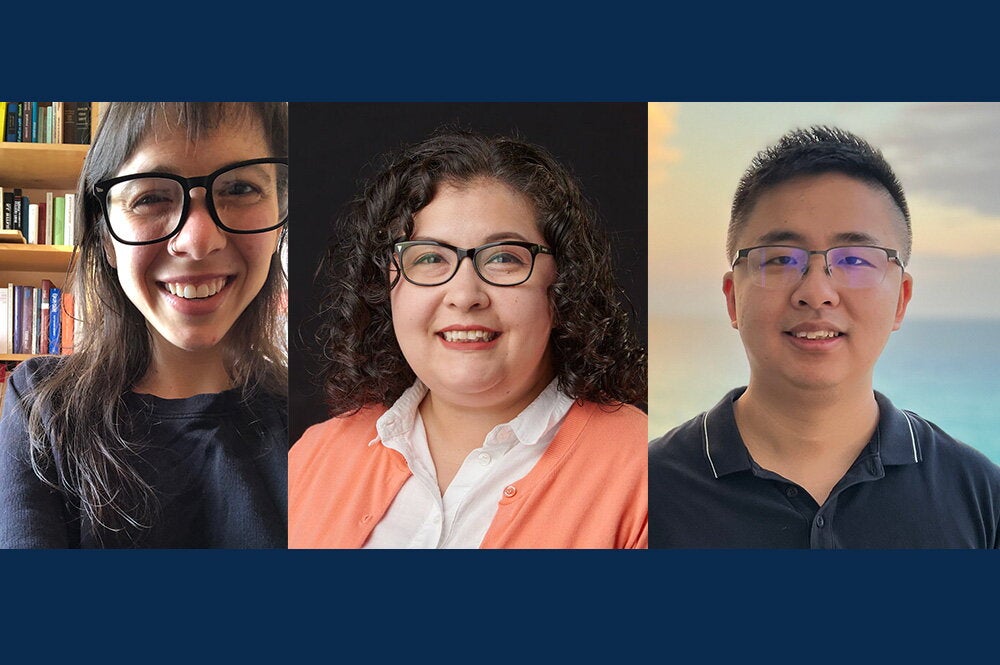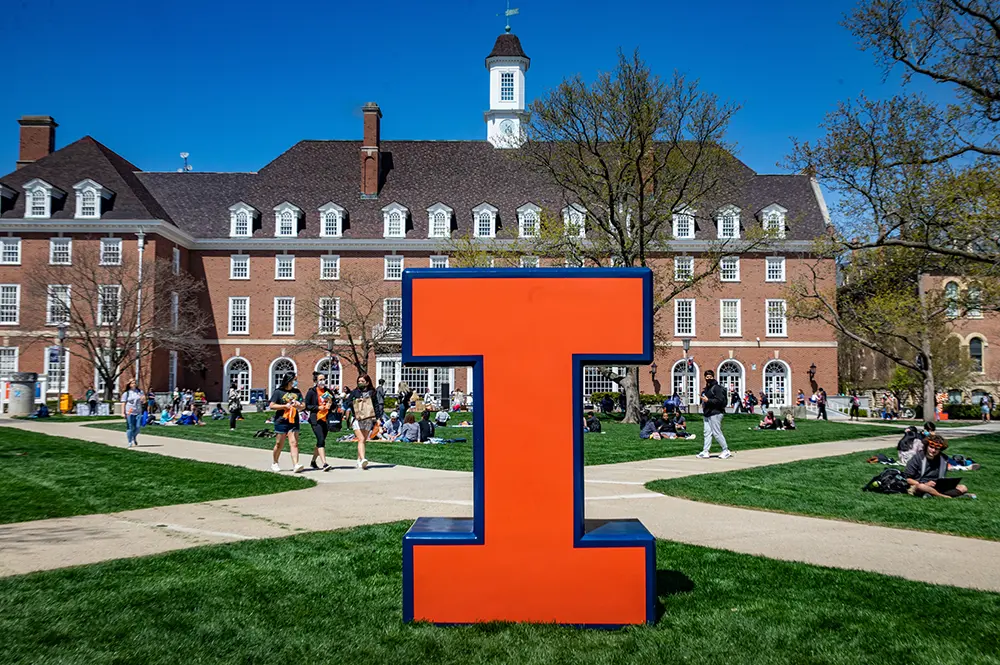
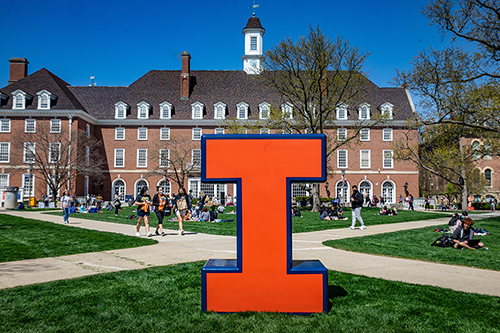
Several teams of faculty and staff will advance ideas to enhance student experiences through a new program in the College of Liberal Arts & Sciences. The teams will receive funding for a variety of initiatives, from improving e-textbooks in linguistics to enhancing operations at a walk-in tutoring center for mathematics and statistics.
The college issued a call for LAS Student Success Initiative proposals earlier this year and received a number of applications. Funding was granted for ideas that led to innovative and inclusive curricula and/or pedagogy, took advantage of new technologies and lessons from the pandemic to enhance ways of learning, created and supported diverse student experiences, increased access and opportunities for historically underserved students, and addressed the recruitment and retention of first-generation students and historically underrepresented ethnic and racial minority students.
“We learned a lot during the COVID-19 pandemic about our strengths, shortcomings, and areas of potential, and we want to emerge from this trying time with new ideas and energy,” said Venetria K. Patton, Harry E. Preble Dean of the College of LAS. “These projects put forth innovative and resourceful solutions to some of our deepest and most complicated problems. I’m pleased and eager to see them implemented.”
Each project is receiving $25,000 to $100,000 in funding for one year. The LAS Student Success Initiative fulfills objectives and recommendations outlined by the 2021-2025 LAS Strategic Plan, the LAS Post-Pandemic Task Force, and the LAS Life and Career Design Initiative.
The project descriptions—edited versions from the proposals—are below.
Building H5P interactive books: engaging, free, and accessible text for undergraduate English as a second language students
Proposal team: Randall Sadler, Susan Faivre, Jin Pennell, John Kotnarowski, Amber Dunse, and Leyla Cooper, Department of Linguistics
Description: “To deliver a more accessible, inclusive, and engaging learning experience, we propose redesigning and improving our undergraduate e‐textbook, Academic Writing for English Language Learners (AWELL), using an HTML5 Package (H5P), an open‐source authoring tool for creating rich, interactive multimedia contents… Our project will involve redesigning and improving our textbook, AWELL, with the HTML5 Package (H5P) that can be hosted in Moodle, Canvas, or Blackboard. Specifically, we will use the H5P interactive book, which allows our students to learn multimedia contents in a gamified format. This book will have several features that benefit our students and instructors as well as the authors and editors.”
Mathematics and Statistics Student Support Center
Proposal team: Ely Kerman and April Hoffmeister, Department of Mathematics; and Jeff Douglas and Kelly Findley, Department of Statistics
Description: “We propose continuing and enhancing the operations of a walk-in tutoring center that provides support to students in introductory mathematics and statistics courses. To help mitigate these effects, the Departments of Mathematics and Statistics applied for, and were awarded, a one-year grant from the provost’s office to create a Student Support Center (SSC) which currently provides walk-in tutoring services for students in several introductory classes. With the return to in-person instruction, it has become clear that the learning deficits resulting from the pandemic are worse than anticipated and that continued support will be crucial to the academic success of students in these classes. We are applying for funding to allow us to operate the SSC in the 2022-23 academic year.”
Development and implementation of the Bridging Online Coursework and Research Experience (BOCARE) Program
Proposal team Chadly Stern, Lisa Travis, Carla Hunter, Nicole Allen, and Mark Aber, Department of Psychology
Description: “We propose an innovative, sustainable, and empirically informed program focused on increasing access to and engagement with the research enterprise among underrepresented racial and ethnic minority (URM) students… The program capitalizes on innovations in online learning and research to bridge course work completed early in a student’s undergraduate career with formal laboratory experience... The program also includes consistent guidance and mentoring from faculty members who function as a glue through which URM students enter and remain in the research pipeline.”
Mentoring and paid co-curricular experiences for LAS Merit students in STEM
Proposal team: Elise McCarren, Department of Chemistry; Jennifer McNeilly, Department of Mathematics; Lily Arias, School of Integrative Biology; and Alejandra Stenger, School of Molecular and Cellular Biology
Description: “In order to support success and retention of underrepresented, first-generation, and rural LAS STEM majors, the LAS Merit Programs are proposing to establish 1) a second eight-week fall course and full semester spring course that includes both a majors-based mentoring network and professional development for LAS Merit students, and 2) sponsorship of paid major-related co-curricular experiences for LAS Merit students, including but not limited to undergraduate research, teaching, and other laboratory experiences.”
Reimaging the general chemistry experience: Enhancing learning outcomes and fostering belonging for under-represented students in STEM and pre-health majors
Proposal team: Tina H. Huang, Department of Chemistry; Gretchen Adams, College of Applied Health Sciences; and Jennifer Cromley, Department of Educational Psychology
Description: “This pilot course in General Chemistry I (CHEM 102) will implement best practices in chemical education and educational psychology to help students improve and enhance learning outcomes, especially for minoritized students who are interested in pursuing careers in the health professions and in STEM disciplines. Thus, we propose to develop a first semester (CHEM 102) general chemistry course that incorporates the best practices in chemical education and educational psychology that addresses the diverse needs of our minoritized students… This will entail developing innovative and equitable approaches to the five areas of our current course structure of CHEM 102.”
